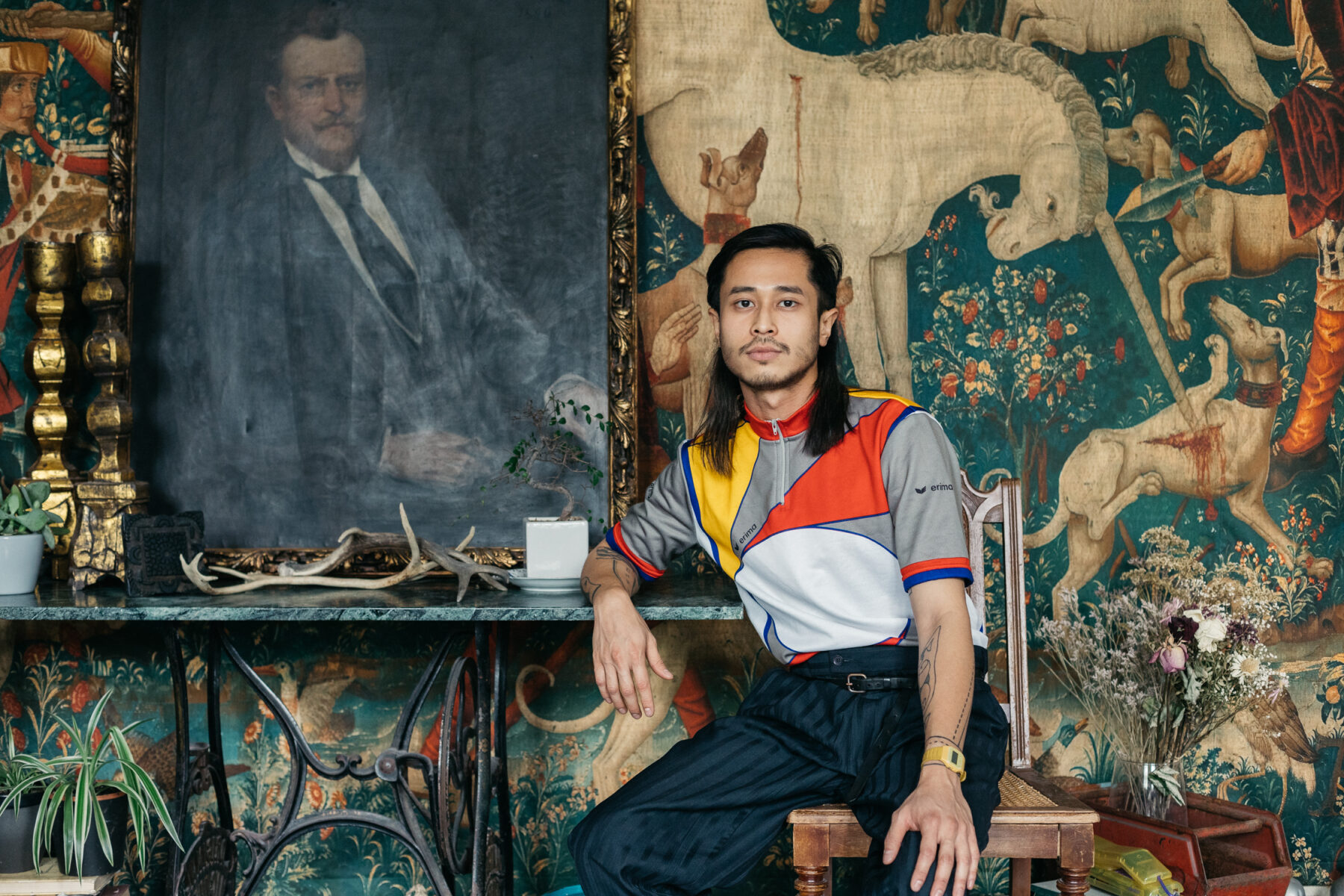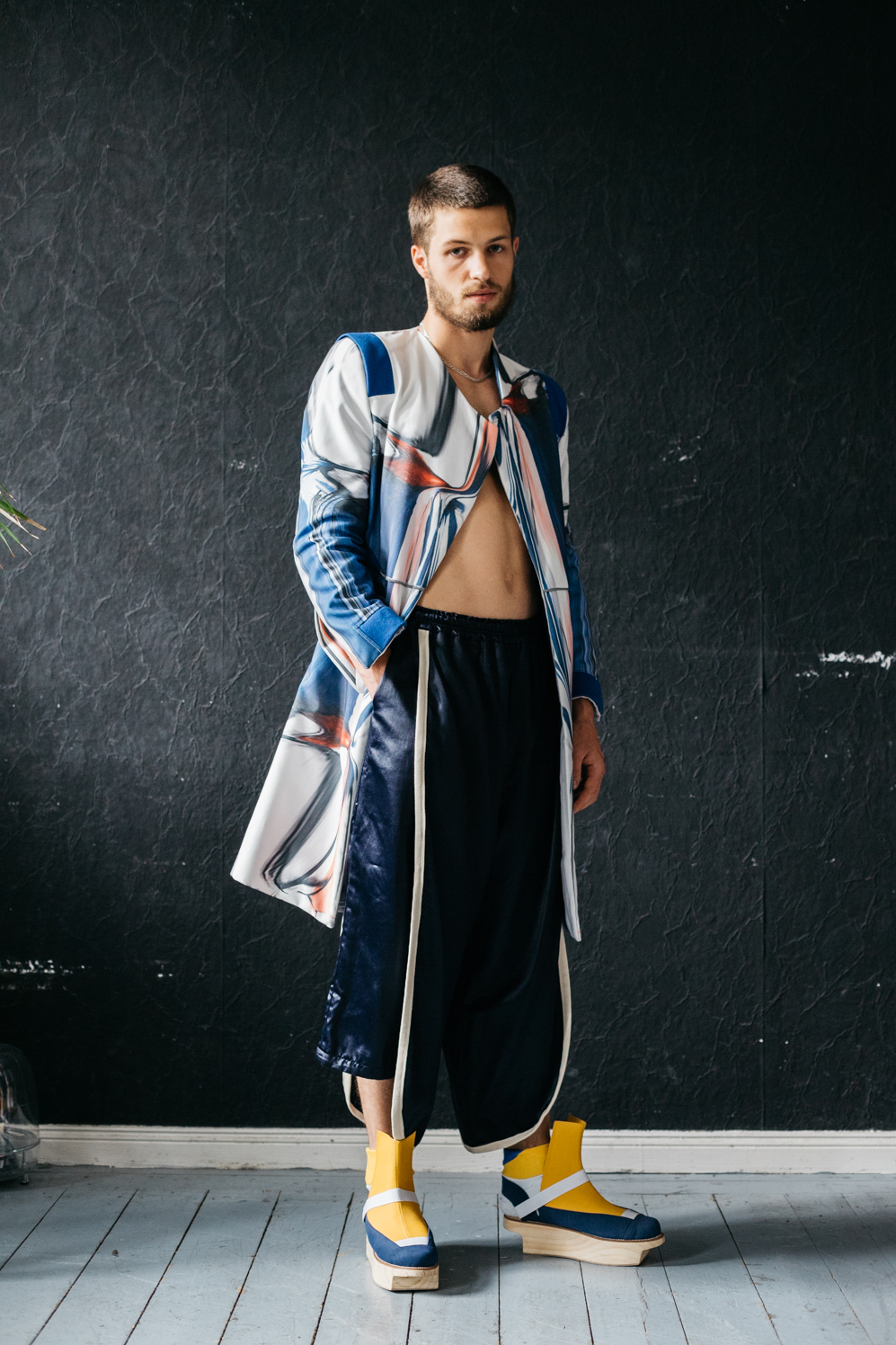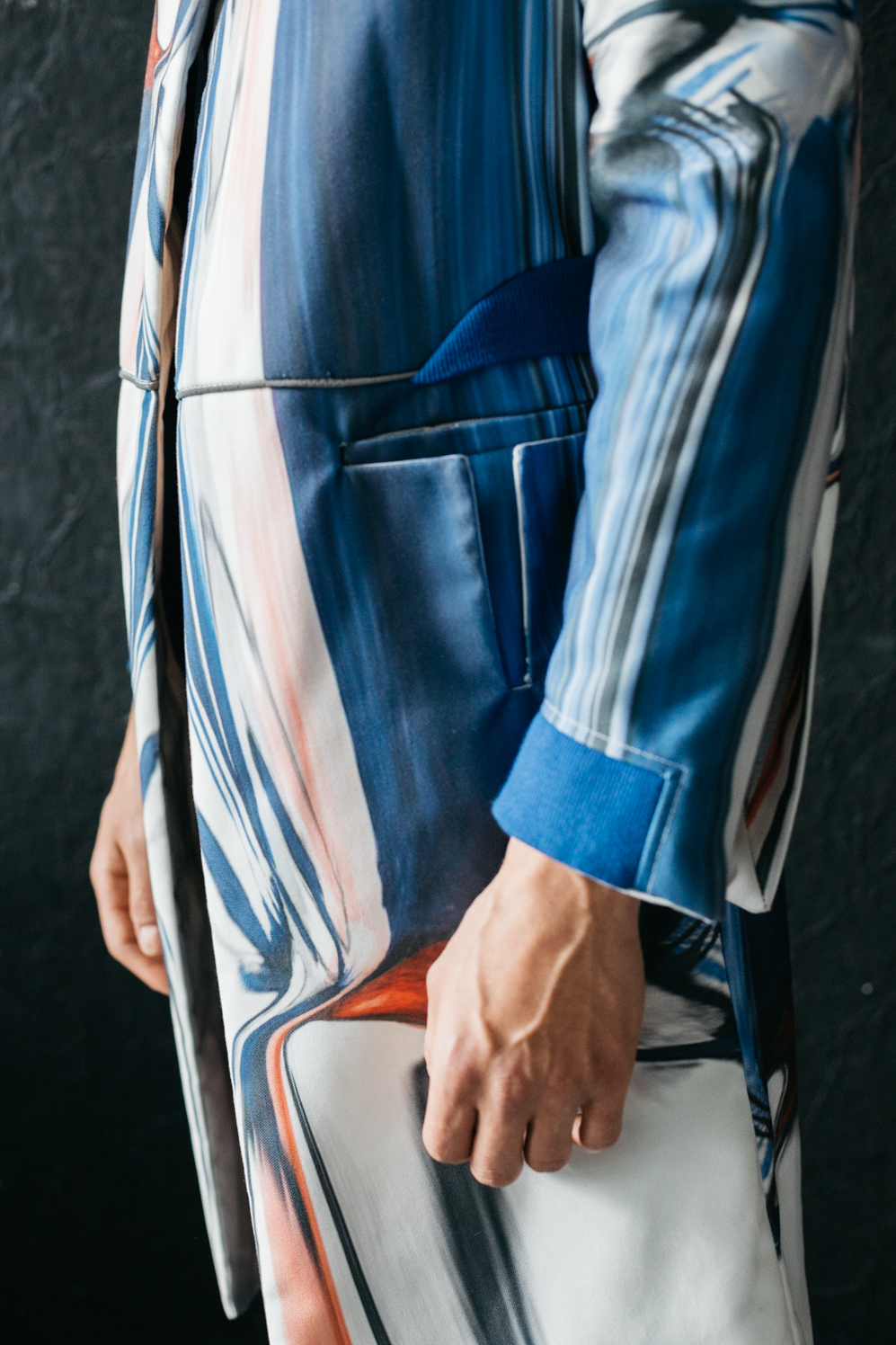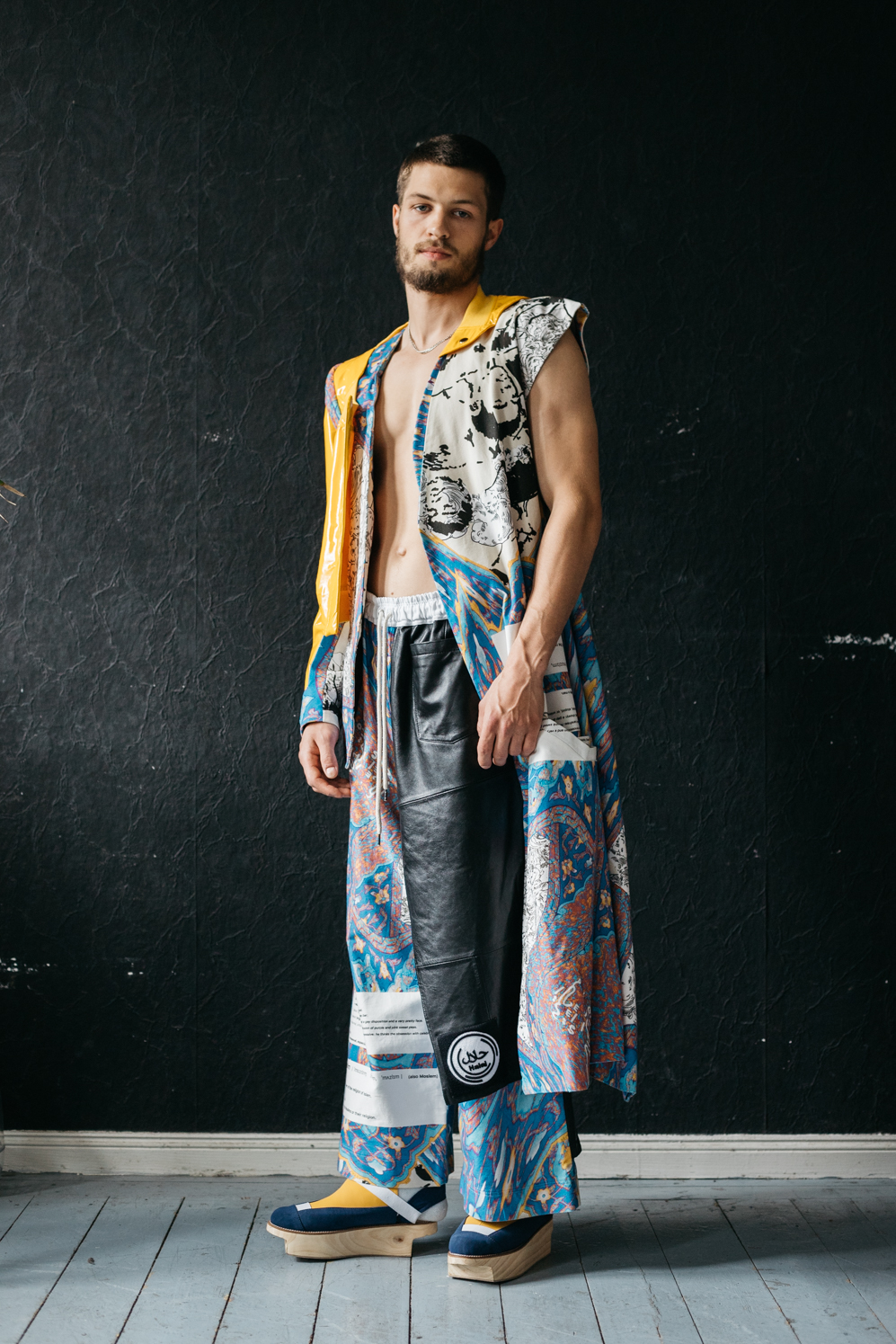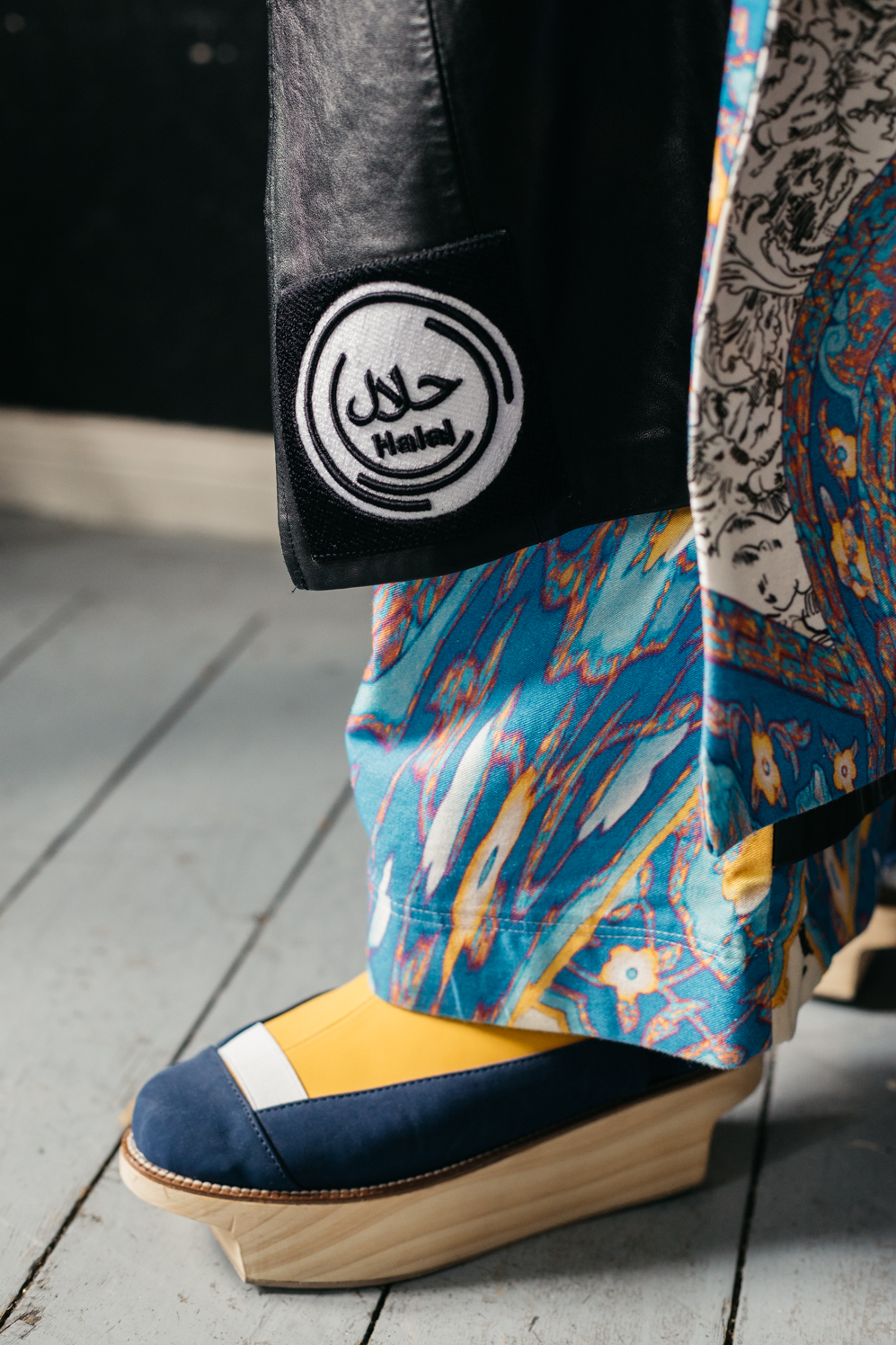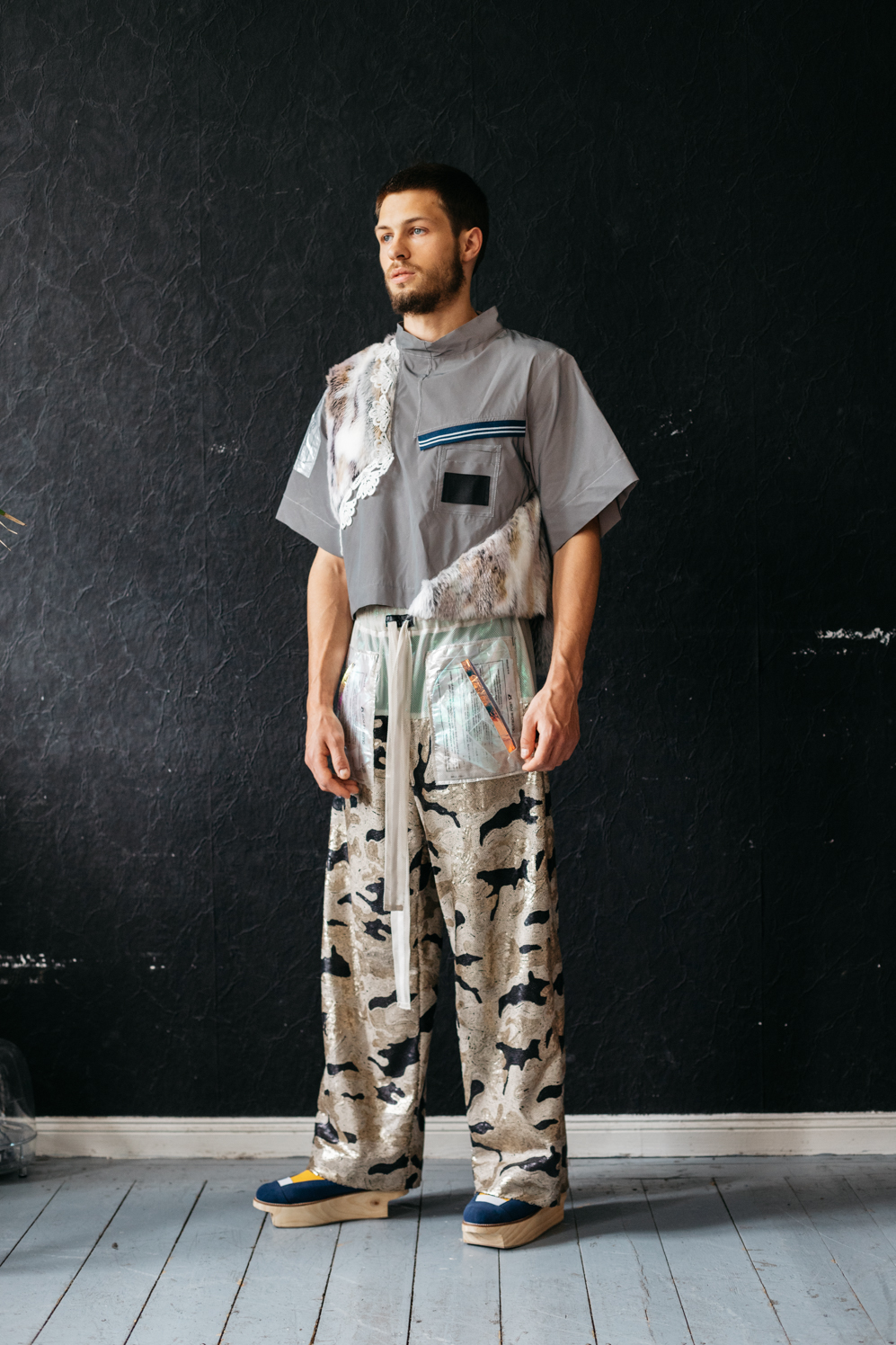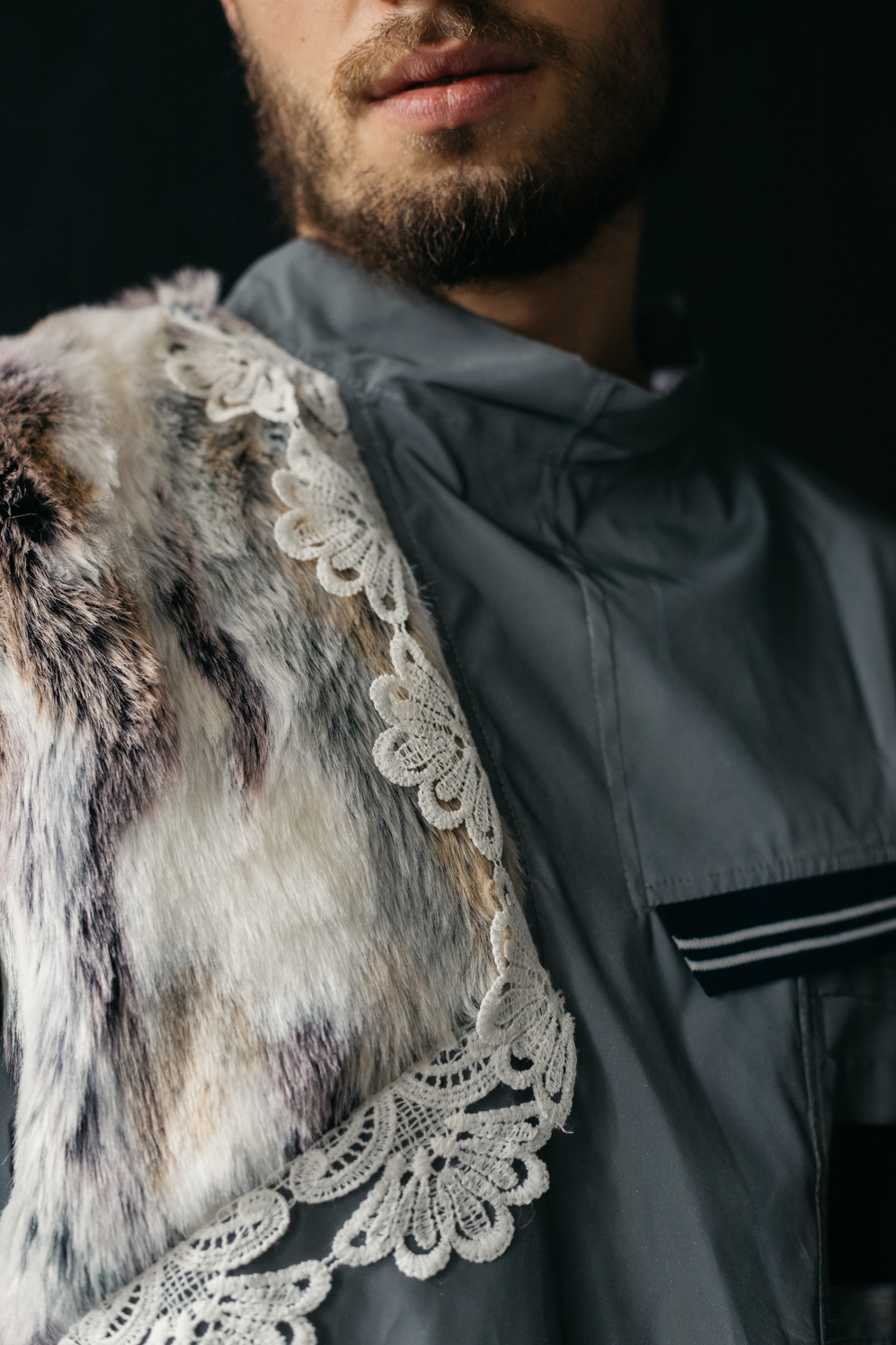How can fashion be used to create a political statement? Meet the Indonesian menswear designer creating counterarguments to social norms through clothing.
“My designs aren’t typically commercial, most of them are very avant-garde,” says fashion designer Don Aretino as he begins to show us around his Kreuzberg studio. Guiding us through the rooms in which he develops his politically-fuelled creations, he says that the majority of the ornate wall hangings, rambling houseplants, and animal statues that adorn the walls and tabletops belong to his flatmate. That is until he points out a Rangda mask from his native Indonesia, prompting him to explain that his relationship with his homeland forms the basis of many of his collections. “My work revolves around a lot of political issues that are prevalent where I come from,” he says, referring to Indonesia’s status as the largest Muslim country in the world, and therefore its treatment of homosexuality as a taboo subject. “It’s pretty open to some stuff, but there’s still a line that you cannot cross. I think being gay is across that line.”
In order to explore his sexuality and identity as a gay Muslim in a secular environment, Aretino moved to Germany at the age of seventeen, attracted by the country’s renowned art universities and its capital’s international community. While initially attracted to being a painter, after the advice of some lecturers Aretino decided to study fashion design at HTW Berlin. During this time he formed the firm opinion that fashion is an art form in itself. “It may have become something more commercial over time, but I think it is still something that can be used to research themes and to create something new,” he says, referencing designers such as Alexander McQueen, Martin Margiela and Craig Green who used strong thematic concepts in their work. “It’s just like painting but with textiles.”
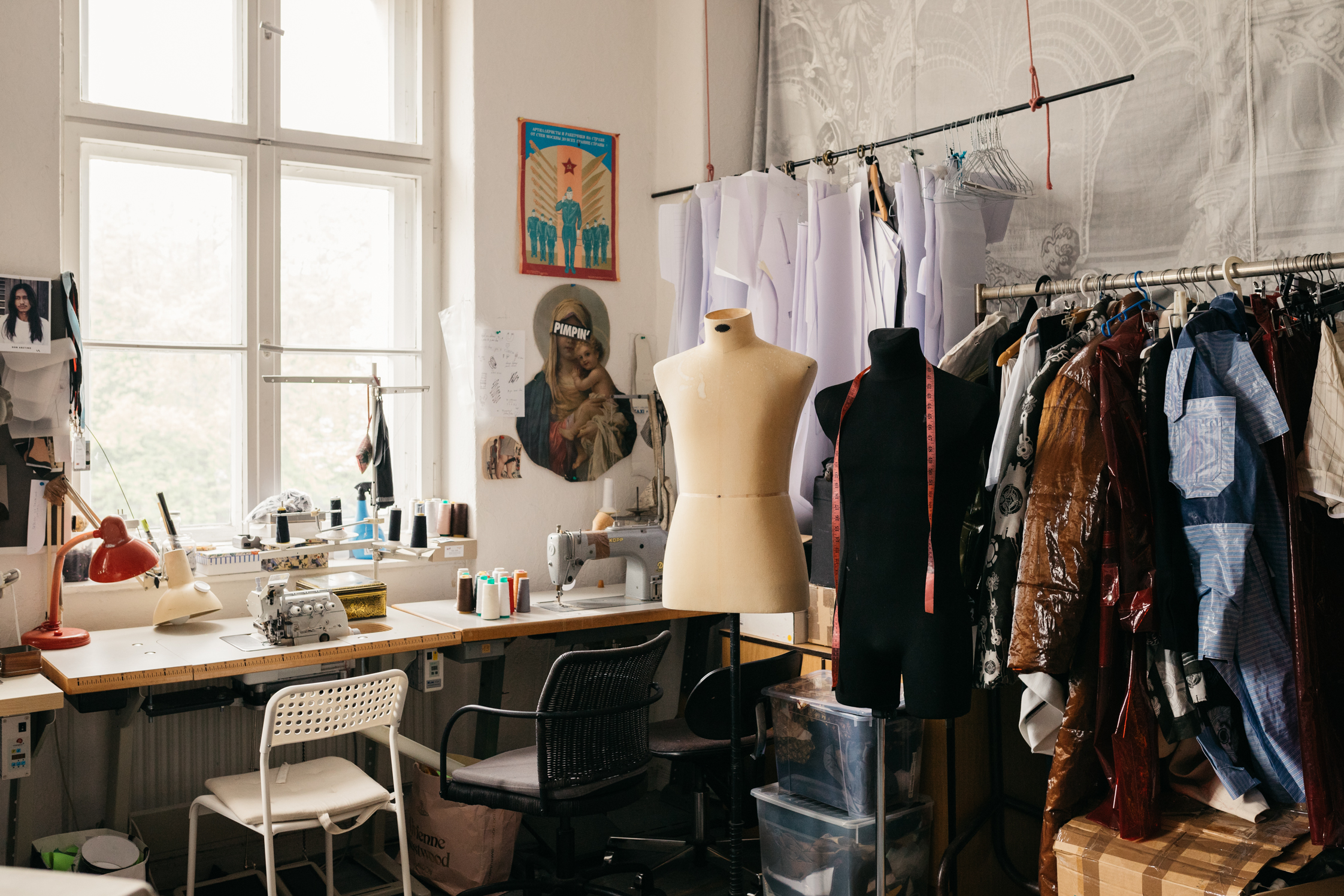
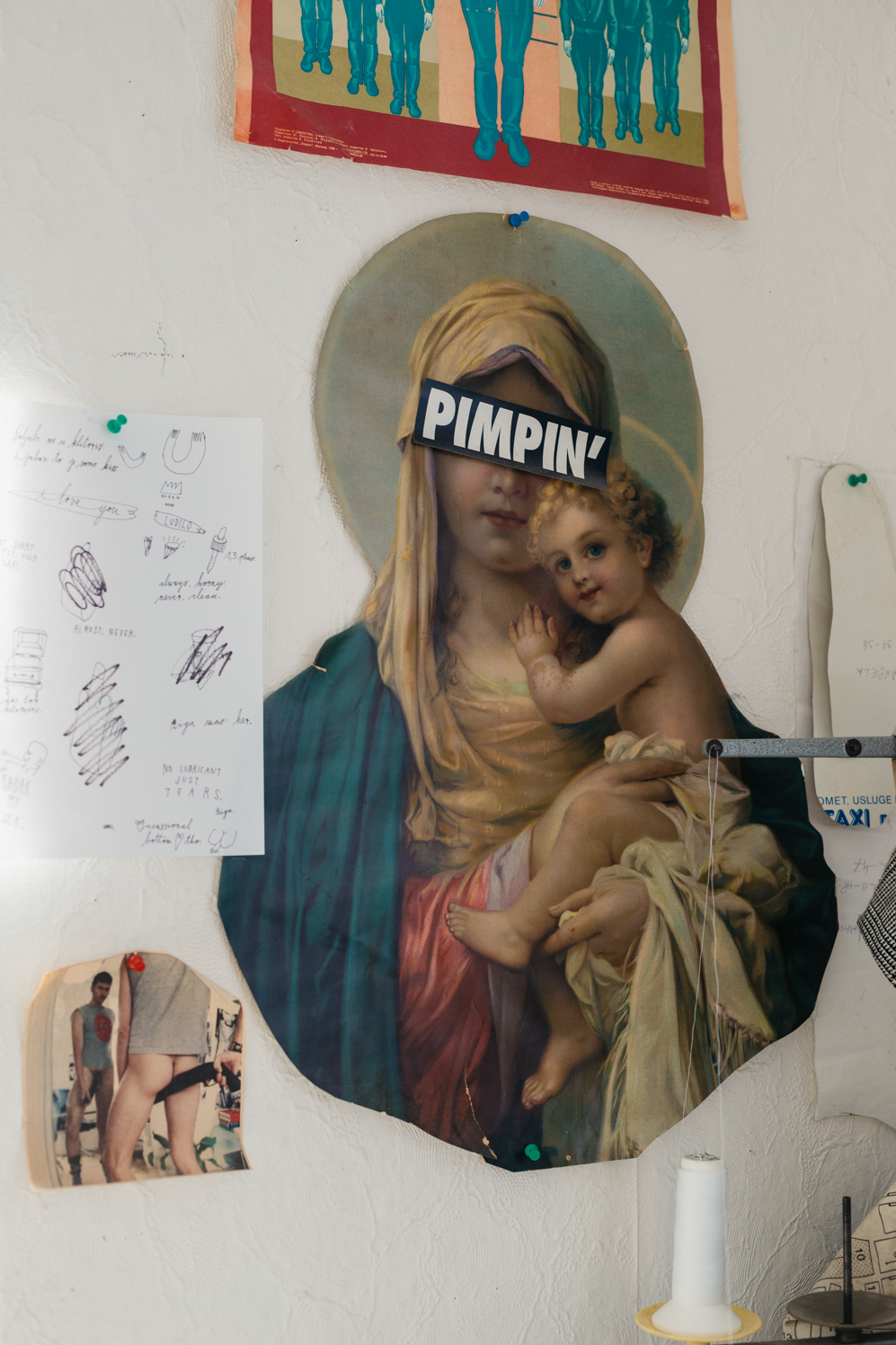
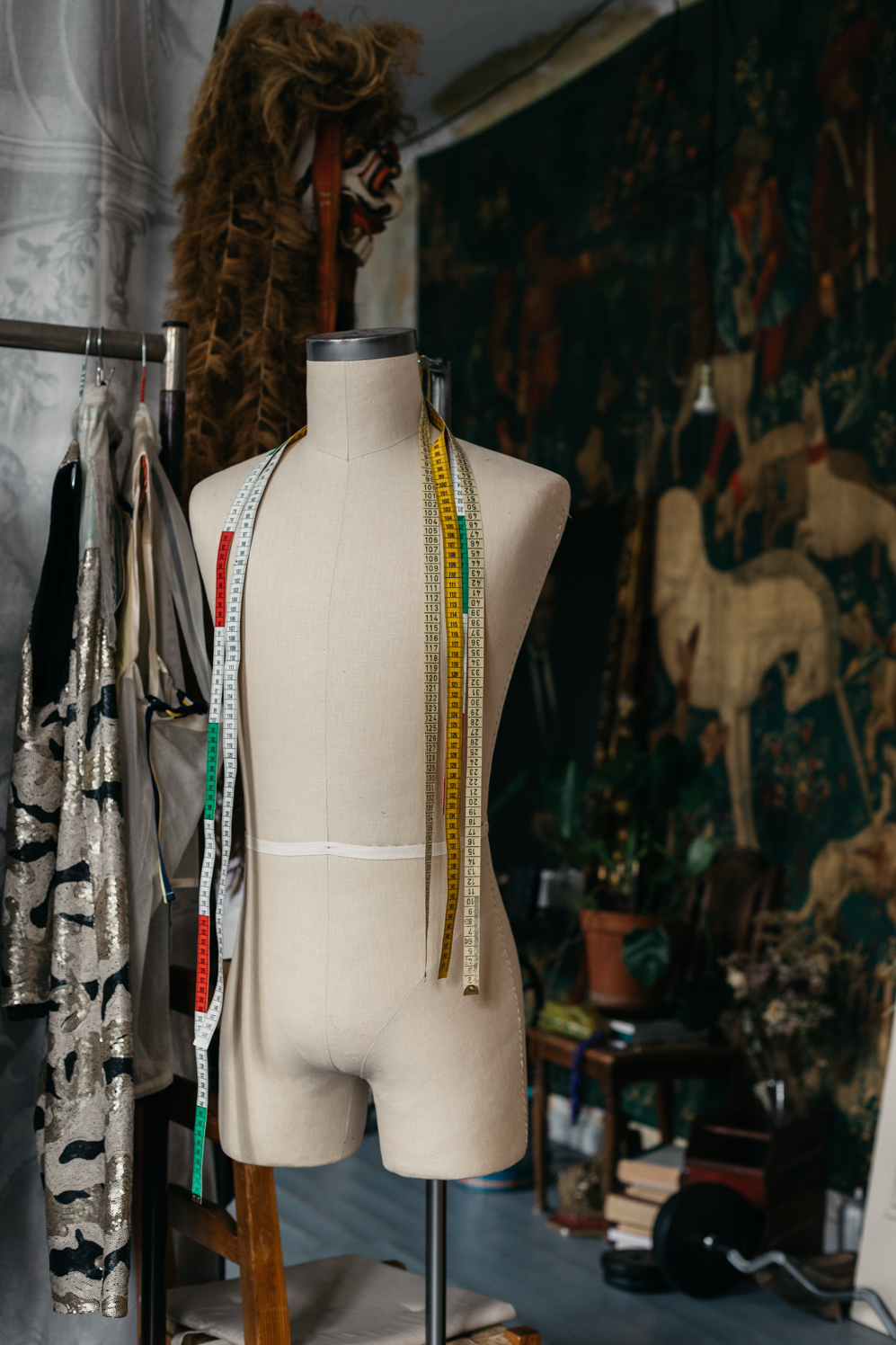
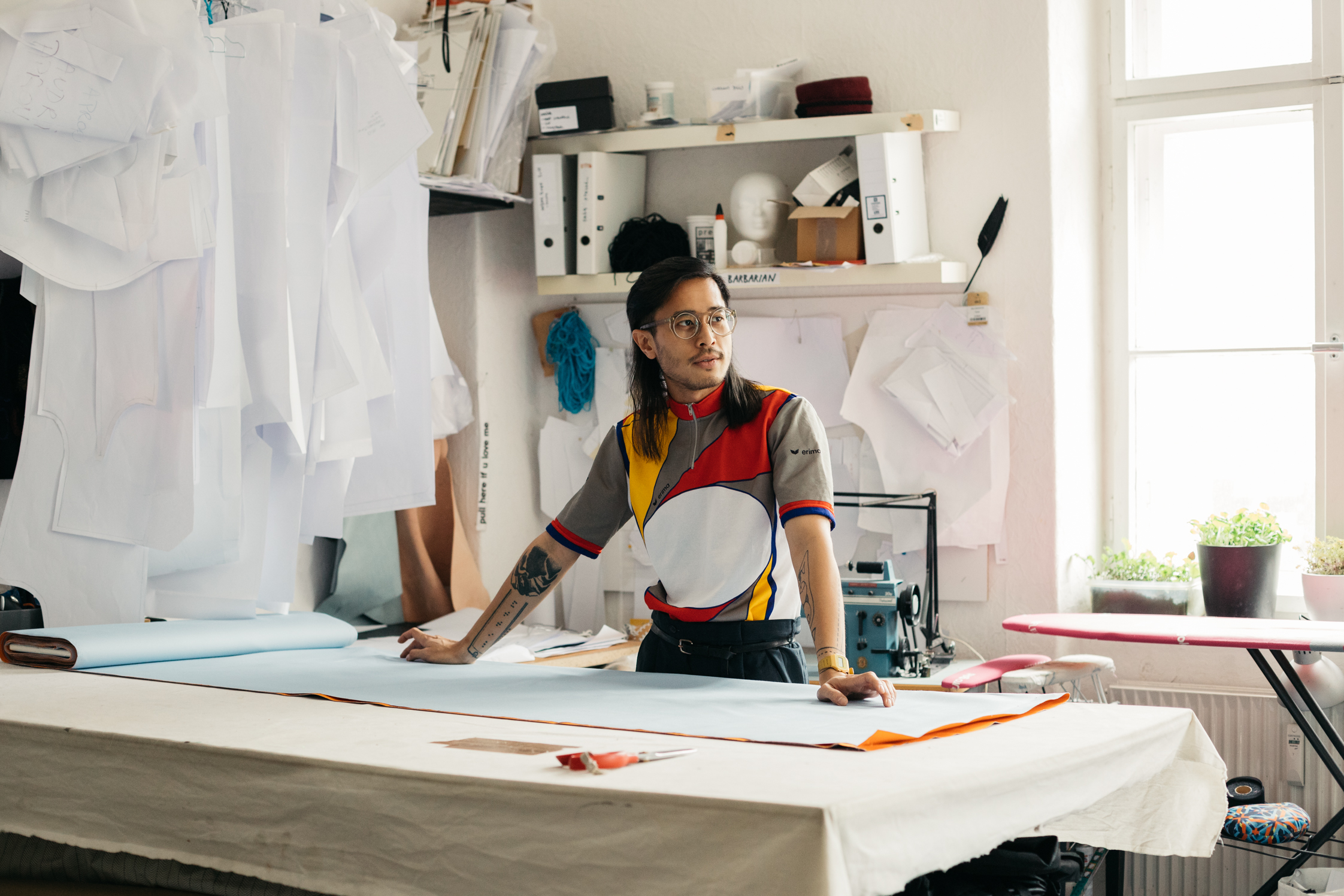
When it came to producing his graduate project, Aretino decided he wanted to begin to focus on discussing his identity as a gay Muslim through fashion. “It’s a privilege to live in Germany and be able to express these matters in a very free way,” he states. Out of this desire came a collection titled Halal. “In Islam there are certain parts of the body that are Haram, which means something you are not allowed to show. Conversely, something that is Halal is something that is permitted,” Aretino explains. “For men, the Haram part is between his belly button and his knees. So with Halal, I decided to subvert the rule by exposing this part of the body.”
Aretino begins dressing his friend and longtime muse Leon Probandt up in an outfit from the collection in the middle of his studio, moving aside a large canvas of a cyborg-like male so his multicolored creation can be set against a black backdrop. “The print of this garment is inspired by the first page of The Quran, and the ornament that is used throughout the text,” he explains as Probandt poses for photographs. Aretino then points out two screenshots of online dictionary definitions of homosexuality and Islam which have been printed onto patches and sewn onto a trouser leg. “I wanted to try and establish my own meaning of being gay and Muslim without taking it from The Quran,” he states. “The Quran is written in such a poetic way and I think people make the mistake of trying to interpret it too literally. You have to make your own definitions for yourself.”
“The Quran is written in such a poetic way and I think people make the mistake of trying to interpret it too literally.”
Similar themes resonate through Aretino’s other collections, which Probandt proceeds to dress up in, emerging in an outfit from an earlier collection titled Don’t Drop the Soap. Taking its inspiration from an article by Berkeley anthropologist Alan Dundes in which he lenses American football as a homoerotic rite, the collection explores the notion of sports locker rooms as platforms for homoeroticism. Noticing the model has nothing on his feet, Aretino rushes to get him a suitable pair of shoes to complete the look. “They look like football boots right?” he says, explaining that he learned to make shoe patterns whilst working as a shop assistant for German footwear brand Trippen.
The last outfit that Probandt emerges in is from Aretino’s latest collection Insular, which explores the theme of xenophobia. “Halal showcased my perspective of being gay in the Islamic world, so in Insular I decided to make a collection about my parents’ perspective on this subject,” he explains. In order to reflect his mum and dad’s unfamiliarity with homosexuality, Aretino used materials he hadn’t worked with before such as sequins, fur “and fabrics not usually used for menswear like lace and pearls.” By mixing them all together, he hoped to make garments that were very “flashy, invasive, and exaggerated”, illustrating how skeptical outsiders may perceive the gay community.
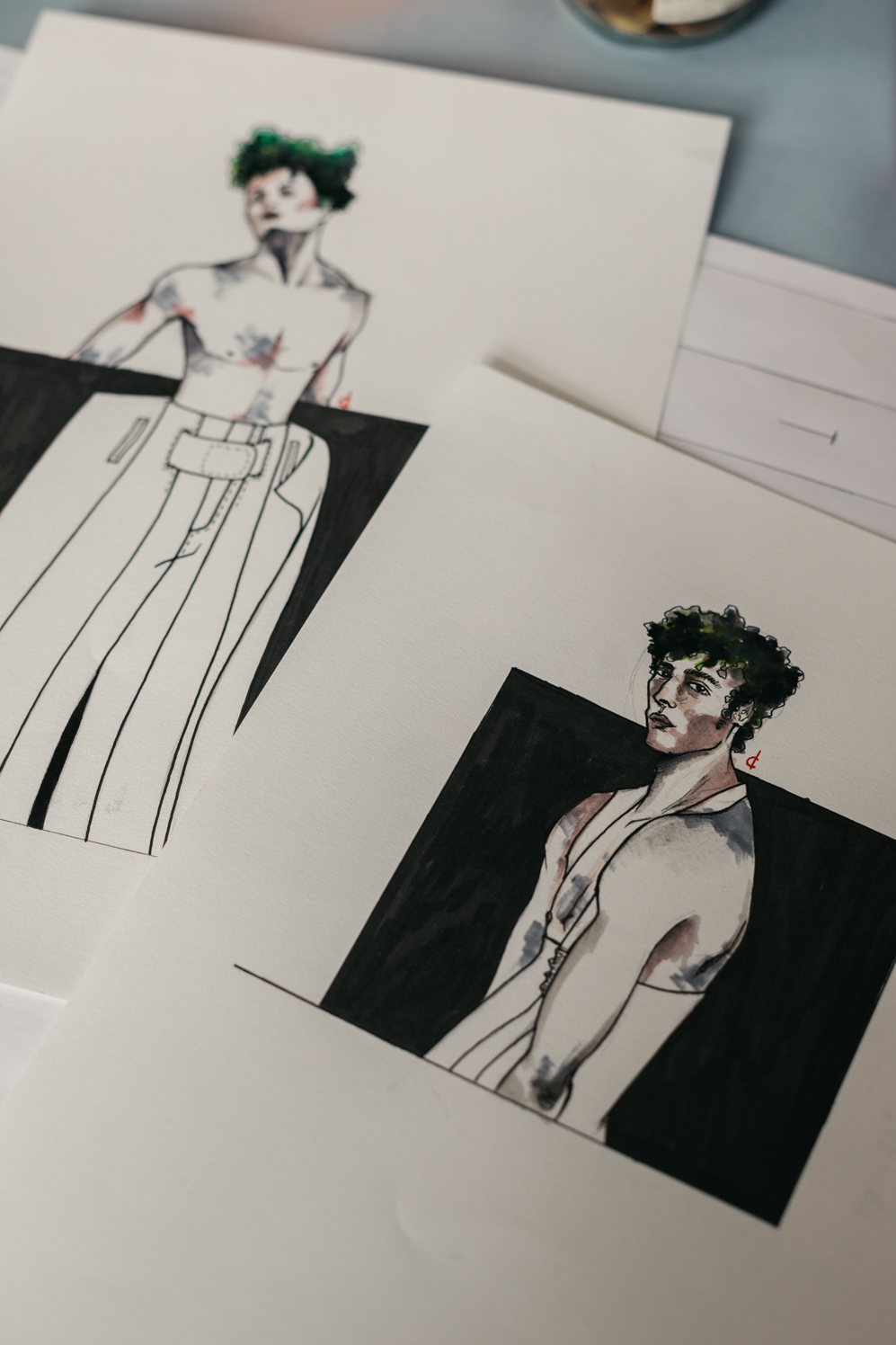
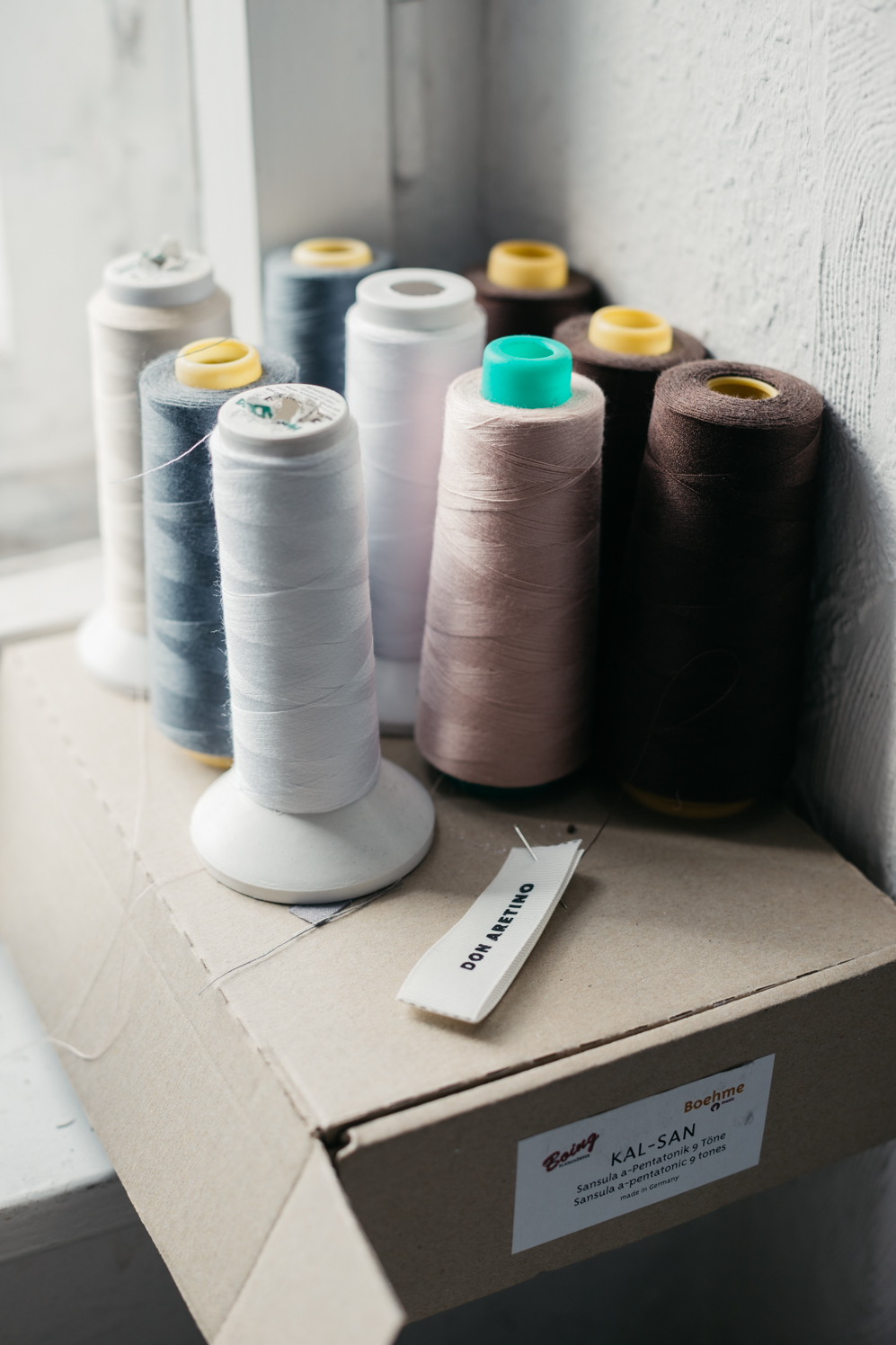
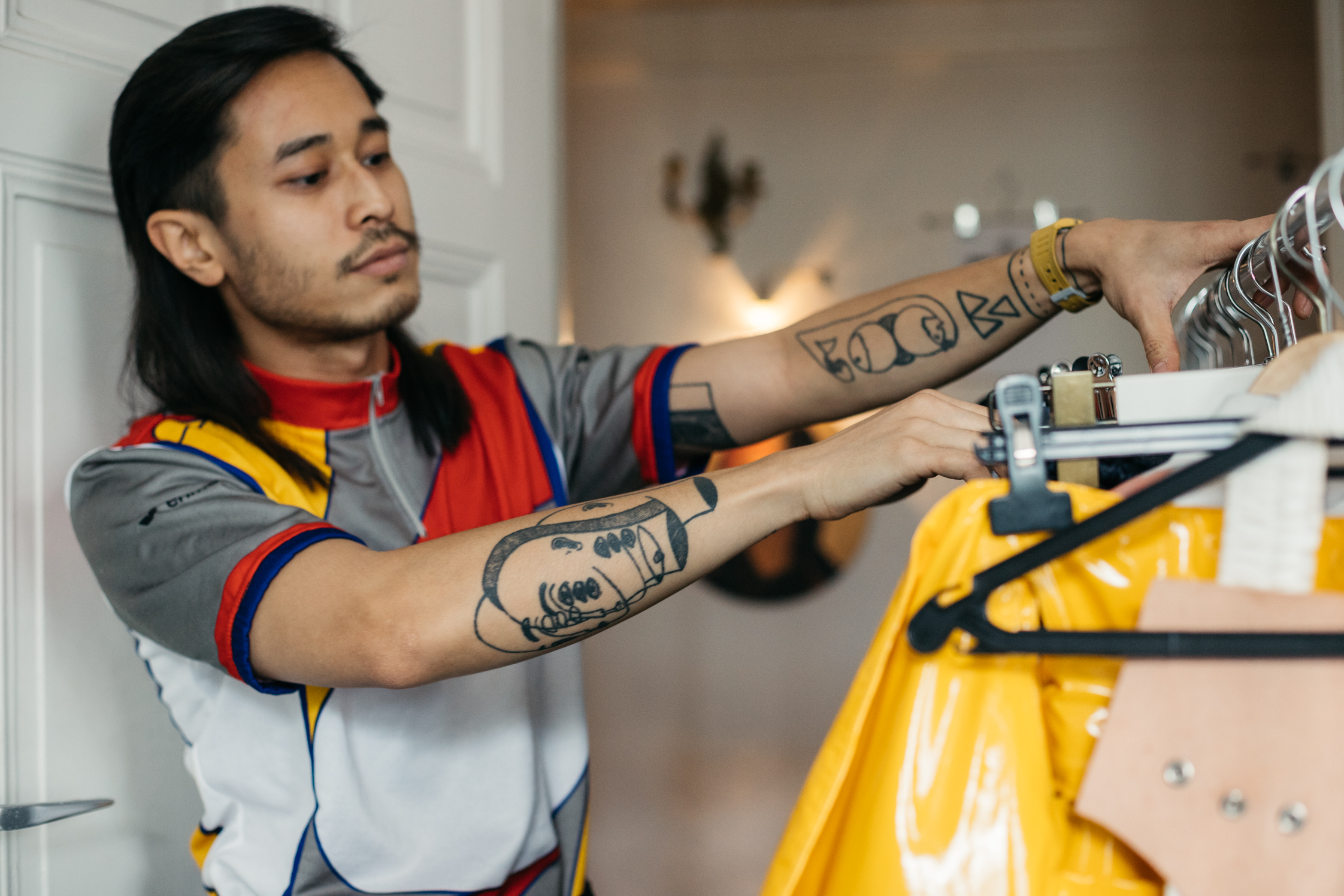
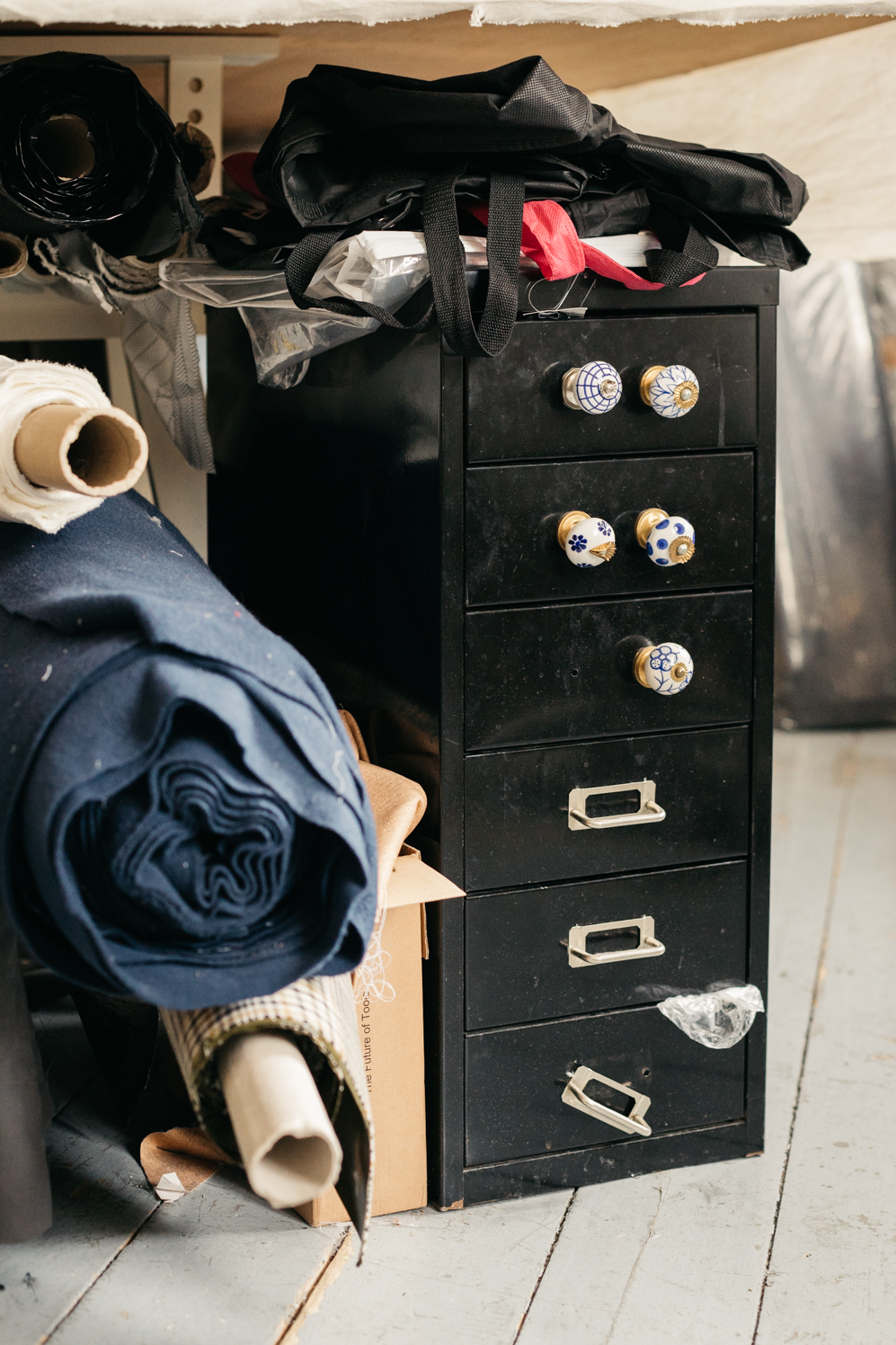
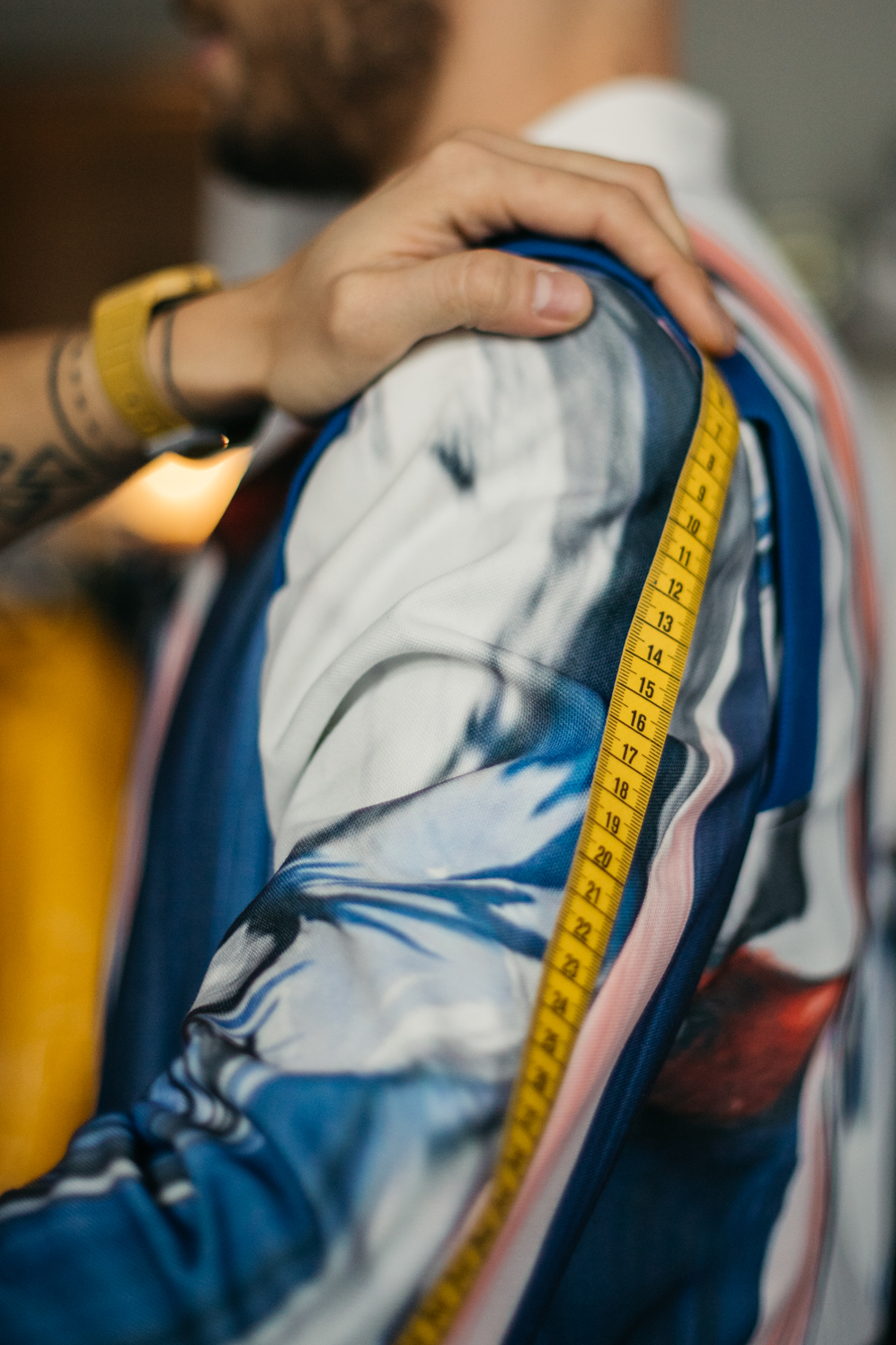
Insular was first shown to the public in November 2018 as part of ‘Now you may tell that I have been seen by you’, an interdisciplinary performance that aimed to synthesize fashion and contemporary dance rather than letting one artform take the creative lead. With choreography by MJ Harper (who has previously directed movement for fashion designers Grace Wales Bonner and Stefano Pilati) and collections by four emerging Berlin-based designers, the show took place at Trauma Bar und Kino, a Berlin event space exploring the possibilities of integrating the arts and popular culture.
Working collaboratively with dance practitioners is a frequent occurrence for Aretino, who has previously designed costumes for contemporary choreographers including Julian Weber and Berlin/Israel based performance duo The Progressive Wave. “It’s nice to work with other people from different mediums and bring their ideas to life,” he explains, enthusiastically. But working with dance can also be challenging. “There are restrictions that I have to work around. I always have to think about whether the dancers will be able to move freely, and how I can make the garments my own whilst still reflecting the choreographer’s vision.” This, however, is part of why Aretino enjoys working with dance and prefers to pursue collaborative opportunities over traditional catwalk style shows on the fashion week circuit. “If I had a big budget I would do it, but I think fashion week is mainly for people just trying to get their name out there,” he says. “Most runways just show clothes as they are, but with dance, you can see them in motion.”
Don Aretino’s politically fueled fashion
Aretino’s collaborative spirit isn’t just restricted to the medium of dance, as after working on multiple music videos for Australian musician Mikey, he has also become fascinated by film. “I love science fiction movies like Fifth Element. I’d like to create that kind of film but in a short format,” he says, going on to discuss Primer, his self-produced film which was recently screened at Trauma Bar. Created in collaboration with Berlin-based interdisciplinary duo Crosslucid—who have worked with the likes of Nike and digital artist Sam Rolfes— Primer combines views of garments from Insular with found footage, and a text by Ion Dumitrescu which explores the concept of ‘hybrid nomads’, and questions what society would be like if being non-binary was the norm. Aretino hopes Primer will be accepted as part of some film festivals back in Indonesia in order to fulfill his ambition of sharing his “counterarguments against social norms” with his native country. He hopes his work may change perceptions about homosexuality in the world’s largest Muslim country, as although being gay isn’t illegal in the whole of Indonesia, it is in the Islamic province of Aceh. Also, at the end of last year, The Guardian reported that the city of Pariaman was planning to fine its gay and transgender residents the equivalent of seventy dollars for disturbing ‘public order’. “I don’t want to offend anyone, but I just want to offer them a new idea that is different from what they know,” he explains. “Indonesia is such an isolated space, and everything in the media has been heavily filtered. Even universities don’t teach anything about gay orientations,” he says. But Aretino thinks there is hope for a more open-minded approach to homosexuality in the country, as a younger generation of Indonesians to whom Aretino belongs have begun to travel and open themselves up to external cultural influences. “I think at some point I need to go back and tell them what they are missing.”
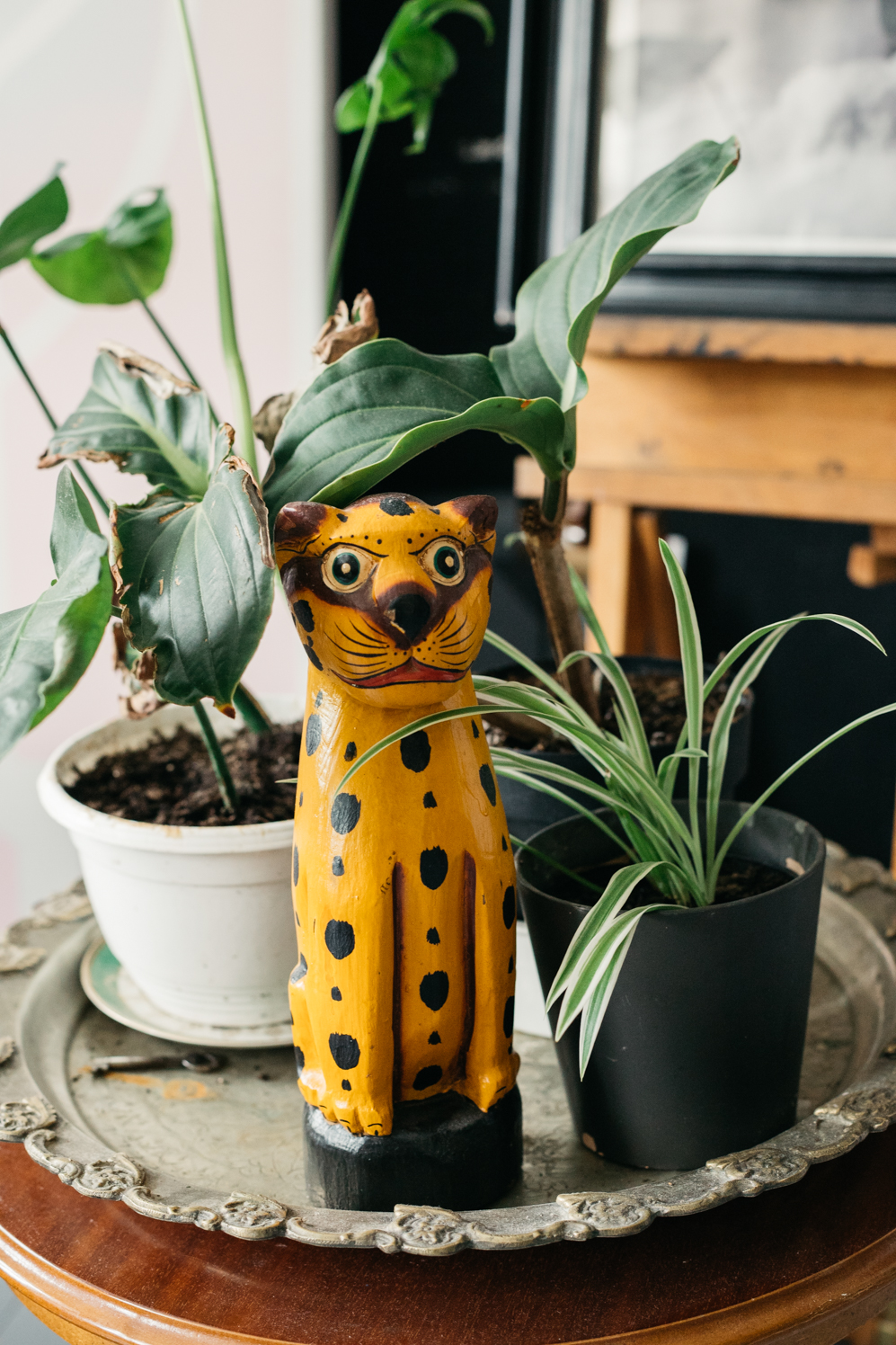
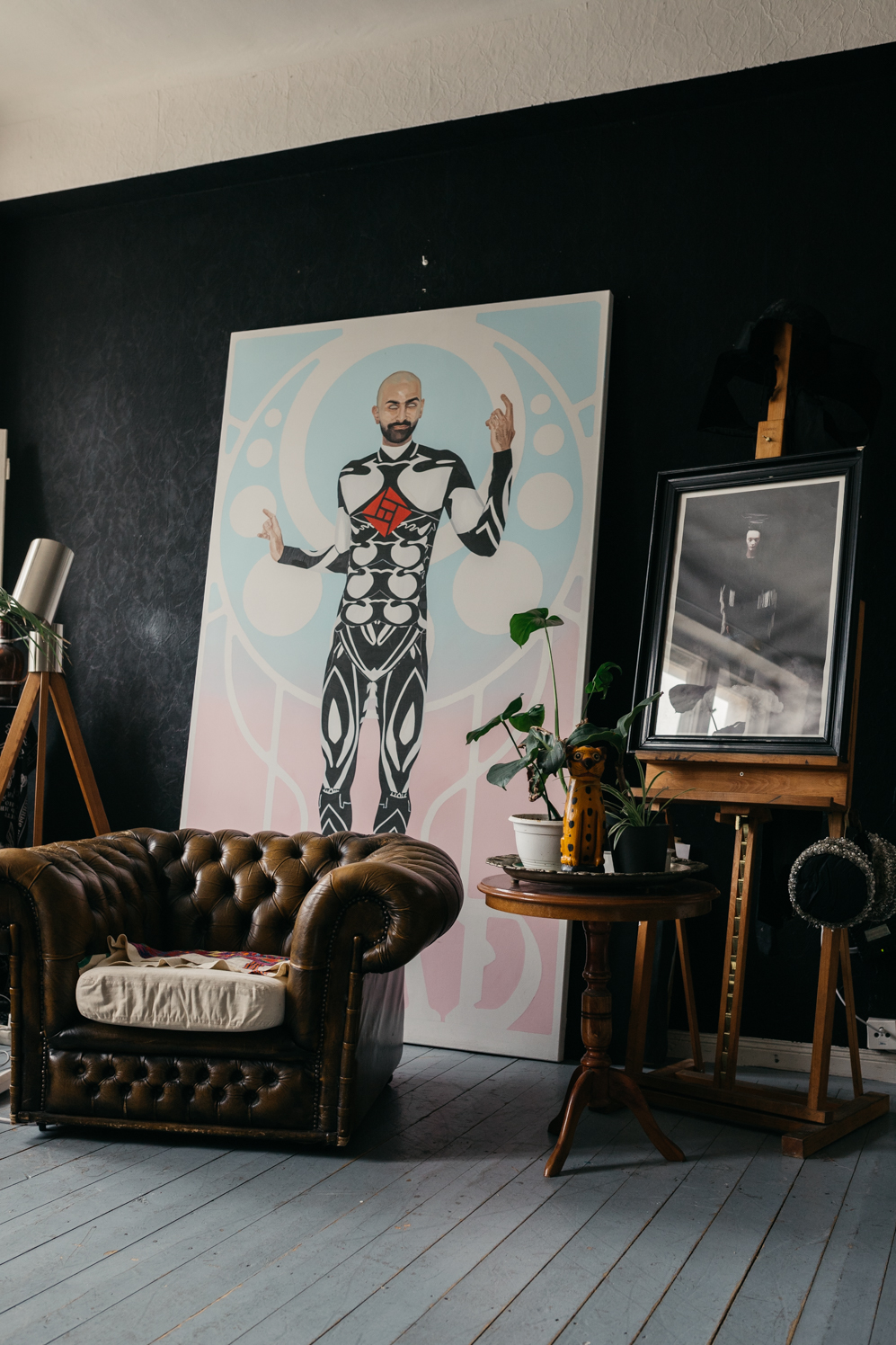
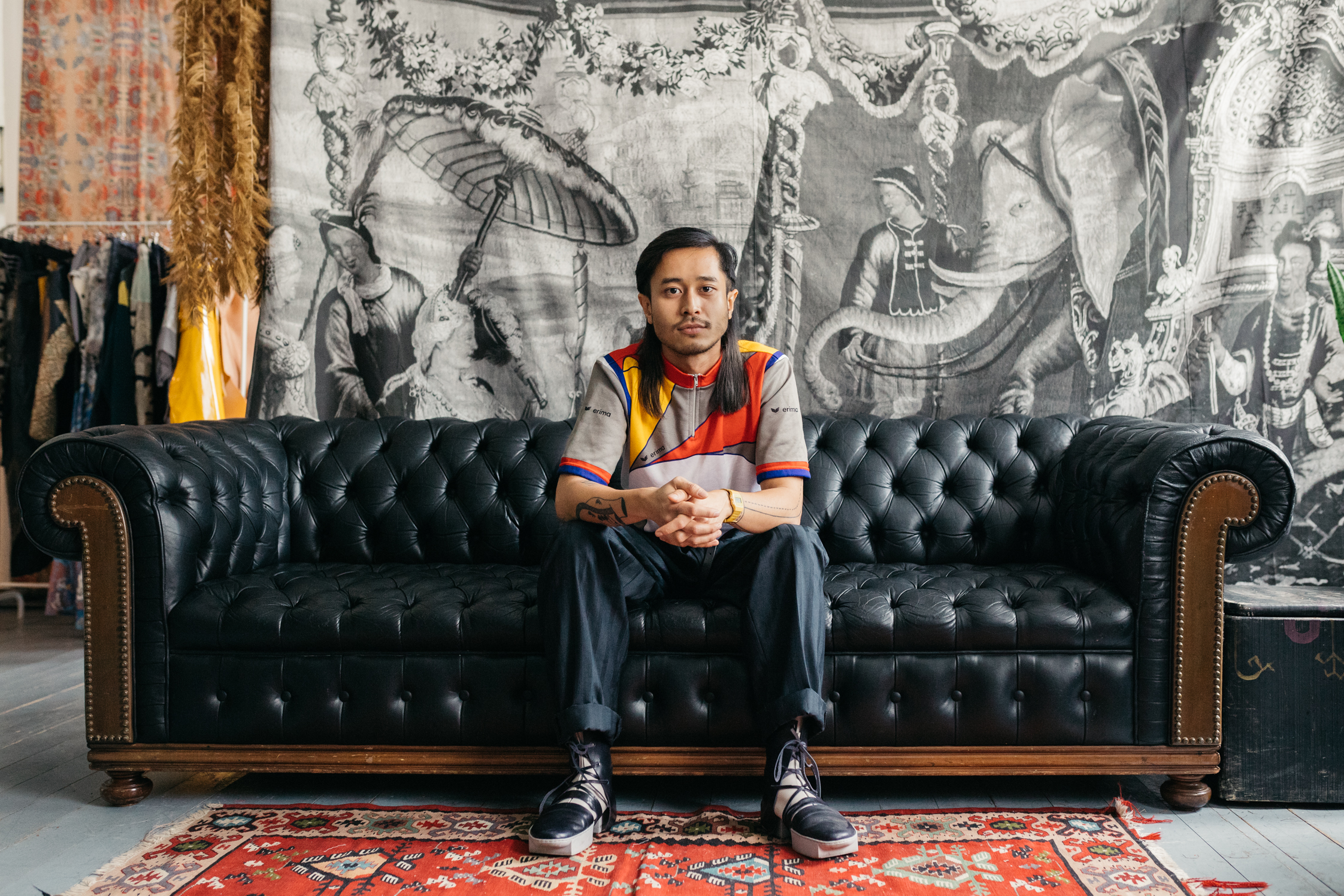
Don Aretino is an Indonesian-born and Berlin-based fashion designer who explores his identity as a gay Muslim through his collections. To find out more about his work follow him on Instagram, or take a look at his website. If you fancy reading more FvF stories about boundary-pushing fashion, check out our interview with L.A. based menswear label Goodfight. Or why not read this profile of non-binary musician Mikey, who Aretino has produced clothes for and worked with on various music videos.
Text: Emily May
Photography: Jenny Peñas
